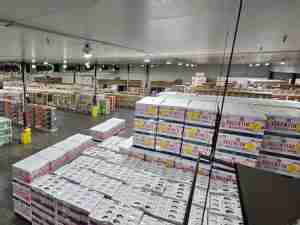UPS hurt by disappointing holiday season, eyes costs, pricing
By: Reuters | Jan 25 2015 at 12:31 PM | Logistics
United Parcel Service Inc on Friday said its fourth-quarter performance was hurt as lackluster holiday demand pushed up costs, and that it will likely raise prices for this year’s peak season.
The world’s largest package delivery company, citing a disappointing performance in U.S. domestic ground shipments, said its fourth-quarter earnings per share would come in below market expectations.
The comments sent UPS shares down 9.2 percent to $103.73 at midday.
“Clearly, our financial performance during the quarter was disappointing,” UPS Chief Executive Officer David Abney said in a regulatory filing. “Going forward, we will reduce operating costs and implement new pricing strategies during peak season.”
UPS also said 2015 earnings-per-share growth would be slightly below its long-term target ranging from 9 percent to 13 percent.
In a separate announcement, main rival FedEx reaffirmed its earnings outlook for its fiscal 2015 year ending May 31.
During the 2013 peak season UPS and FedEx Corp were hit by a late surge in online orders that left an estimated 2 million packages stranded on Christmas Eve. Both companies worked last year to avoid a repeat. UPS spent $500 million on network improvements to handle anticipated growth in e-commerce shipments.
The Atlanta-based company expects earnings of approximately $1.25 per share for the fourth quarter. Analysts estimated $1.47.
Its international business was also hurt by one-time charges and negative foreign exchange comparisons. UPS also said it will take a noncash, aftertax charge of $670 million related to its pension plans.
The company said it prepared its network to handle a spike in package volumes on Cyber Monday and on its peak day, Dec. 22. But demand was less than expected on those days.
As a result, UPS was hurt by a decline in productivity and extra costs it incurred on those days.
“I think UPS was so concerned about the horrible 2013 they over-planned for 2014, and voila, they spent too much money and hired too many people to handle what wound up being a muddled peak,” said Helane Becker, an analyst at Cowen & Company.
Becker said the peak season was also affected by the slowdown at West Coast ports, a problem FedEx highlighted in a Dec. 17 earnings conference call.
She said raising peak prices was a smart move under the circumstances, but added some large customers will push back.









